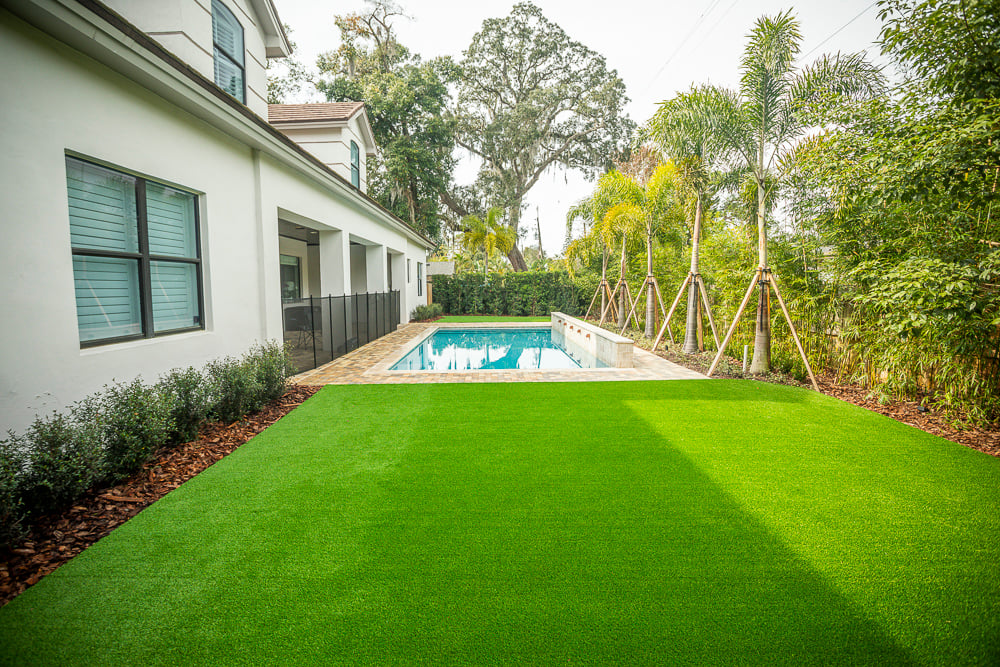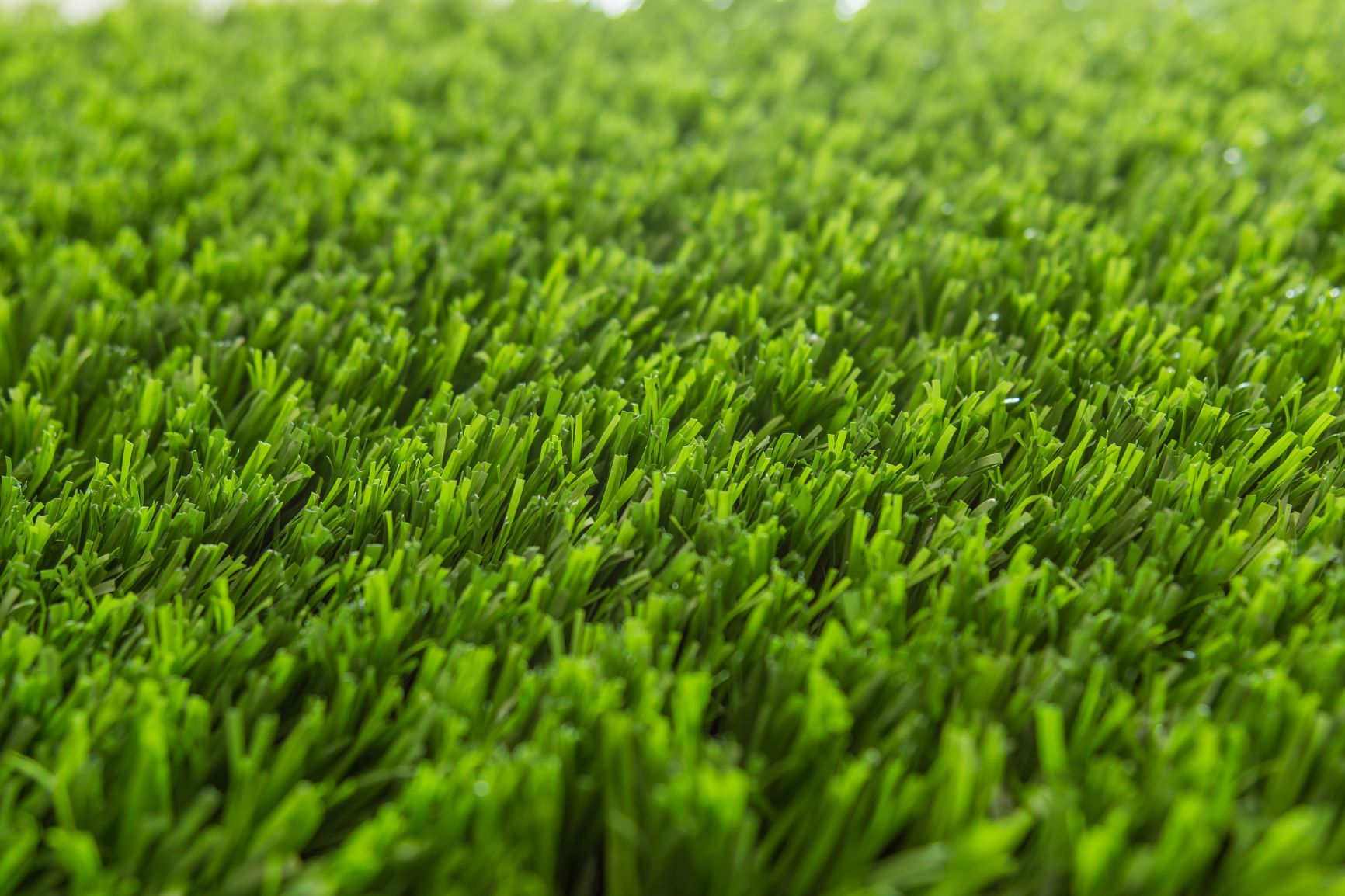Budget-Friendly Turf Installation Phoenix AZ for a Hassle-Free Lawn Option
Budget-Friendly Turf Installation Phoenix AZ for a Hassle-Free Lawn Option
Blog Article
Delve Into the Environmental Conveniences of Opting for Synthetic Grass Solutions
The fostering of artificial turf services provides a compelling possibility to address pressing ecological obstacles. By substantially reducing water use and decreasing the application of hazardous chemicals, these options not only promote lasting landscaping however also protect neighborhood communities. Moreover, the reduced carbon impact connected with decreased maintenance activities adds to a much more sustainable method to land administration. Nevertheless, the ramifications of these benefits extend beyond mere preservation efforts, elevating inquiries regarding their lasting effect on environment conservation and overall environmental equilibrium. Discovering these dimensions discloses an intricate interplay worth taking into consideration.
Water Conservation Advantages
One of one of the most significant advantages of synthetic grass is its ability to preserve water. Typical turf yards call for significant watering, especially in areas susceptible to dry spell or water restrictions. In comparison, artificial grass does not need watering, significantly decreasing the total need for water resources. This feature is particularly valuable in arid areas where water deficiency is a pushing issue.
By eliminating the demand for regular watering, man-made lawn adds to sustainable landscape practices and aids alleviate the environmental effect of too much water usage. Additionally, the preservation of water reaches the decrease of overflow, which can lead to soil erosion and river air pollution.
In addition, the installment of man-made lawn permits house owners and municipalities to allocate water sources more effectively, focusing on crucial uses such as drinking water and agriculture. The change in the direction of fabricated grass not just advertises liable water use but likewise lines up with wider environmental goals focused on preserving natural deposits.
As neighborhoods progressively focus on sustainability, the water conservation advantages of artificial turf present an engaging instance for its fostering in household and business landscaping tasks.
Lowered Chemical Usage
The shift to synthetic grass considerably lowers the dependence on chemical treatments frequently made use of in all-natural yard maintenance. Standard grass monitoring typically entails the application of plant foods, chemicals, and herbicides to promote growth and control pests. These chemicals can present threats to human health and wellness, local wild animals, and the environment, adding to dirt and water contamination.
In comparison, synthetic grass removes the need for these damaging substances. By lessening the launch of artificial substances into the ecosystem, fabricated turf advertises healthier dirt and water systems.
Moreover, the absence of chemical runoff related to artificial turf setups aids safeguard regional waterways from contamination, sustaining water life and keeping biodiversity. Artificial turf companies phoenix. As communities significantly focus on lasting methods, choosing for synthetic grass provides a feasible solution that aligns with ecological preservation goals. With this shift, property proprietors can enjoy rich green spaces without compromising ecological health, paving the means for a much more sustainable future
Lower Carbon Impact

In addition, the installation of synthetic grass can result in considerable water preservation. Natural yards require considerable quantities of water for irrigation, which not only contributes to the carbon footprint related to water extraction and therapy however also stress neighborhood water resources. In comparison, artificial grass requires very little maintenance, needing no watering, therefore substantially lowering water view publisher site usage and its connected power prices.
In addition, the durability of man-made lawn contributes to its decreased carbon impact. With a life expectancy of as much as 15 years or even more, the requirement for frequent replacements is diminished, resulting in less waste and lower power intake in production and getting rid of conventional yard choices. Overall, artificial grass provides a lasting choice for eco conscious landscaping.
Habitat Preservation
Habitat preservation is an important consideration in the argument over landscape design choices, specifically when comparing synthetic grass to natural grass. All-natural yard yards often call for comprehensive upkeep, including making use of plant foods, herbicides, and chemicals, which can detrimentally impact local ecosystems. These chemicals can leach into the soil and rivers, harming indigenous vegetation and animals and interfering with regional habitats.
On the other hand, synthetic grass offers a chance to decrease the eco-friendly impact of landscaping. By deciding for artificial turf, homeowners can decrease the interruption of all-natural habitats related to visit their website conventional grass care methods. Synthetic grass eliminates the need for dangerous chemicals, therefore safeguarding close-by wild animals and preserving the stability of bordering communities. Moreover, the installment of synthetic grass can lead to the conversion of former yard locations into more biodiverse landscapes, such as pollinator yards or indigenous plant areas, which can support regional wild animals.
Ultimately, the change to man-made turf not only conserves water and minimizes maintenance efforts but also fosters a more unified partnership in between human activities and the natural surroundings, advertising environment preservation in the process.
Long-Term Sustainability
Lasting sustainability is an essential element in examining the advantages of synthetic grass over standard yard lawns. One of the most considerable benefits of artificial lawn is its durability; it can last approximately 15-20 years with very little maintenance, whereas all-natural lawn requires constant reseeding and replacement. This long life minimizes the need for consistent resources, such as water, fertilizers, and chemicals, which are crucial page for preserving a healthy and balanced turf lawn.
Furthermore, artificial lawn adds to a decrease in carbon emissions connected with grass treatment devices. Traditional yards often call for gas-powered mowers, trimmers, and blowers, every one of which add to air contamination. Arizona turf. On the other hand, artificial turf gets rid of the need for such devices, promoting a cleaner setting
In addition, the production of man-made turf significantly utilizes recycled materials, improving its sustainability account. As suppliers adopt green practices, the environmental footprint of synthetic turf continues to diminish.

Final Thought
The fostering of synthetic grass solutions provides considerable environmental benefits, including substantial water conservation, reduced reliance on harmful chemicals, and a reduced carbon footprint. Moreover, synthetic grass aids in maintaining natural environments by minimizing land disruption and advertising lasting sustainability via using sturdy products. Jointly, these elements highlight the capacity of artificial lawn to add positively to environmental wellness and use a feasible alternative to standard landscaping practices in an increasingly resource-conscious globe.
In contrast, artificial turf does not require watering, substantially decreasing the total demand for water sources. By decreasing the launch of artificial compounds into the environment, man-made lawn promotes much healthier soil and water systems.
Additionally, the installation of fabricated grass can result in considerable water preservation. In comparison, man-made lawn requires very little upkeep, needing no watering, thereby substantially reducing water usage and its connected energy prices.

Report this page